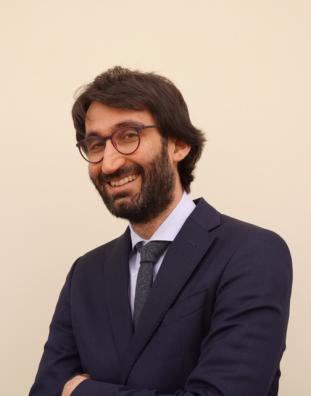

Marcos Morell: “We will promote renewable energy in production sectors”
The Ministry for Ecological Transition and the Demographic Challenge (MITECO) will back with €316 million innovative projects that favour the integration of renewable energy in the power or heat generating systems. Víctor Marcos Morell, Director of Renewable Energy and Electricity Market with the Institute for Diversification and Energy Savings (IDAE), explains to C&R News in this interview how the subsidies are being processed and who is entitled to them.
In August his Ministry set up financial aid for innovative projects that promote the integration of renewable energy into the electricity or thermal energy generation systems. What are its goals?
To contribute towards achieving Spain’s goals in rolling out clean energy. We want to double the consumption of renewable energy by 2030 and to achieve a renewable energy system and climate neutrality by 2050. With this financial aid we also seek to create jobs and economic activity in the renewable energy industrial segment, a sector where our country is one of the leaders.
We also seek to promote renewable energy that is integrated in production sectors, such as industry or agriculture, and the use of renewable thermal energy such as biomass or heat pumps. Also, application of innovative solutions that include the use of storage and hybridisation of different technologies.
Lastly, social considerations play an important role in these programs. Each autonomous community has evaluated these concepts differently, but local energy communities and just transition areas were concepts that have generally received extra points for the projects that considered them.
What budget was allocated for these programs and how are they being managed?
The Ministry for Ecological Transition and the Demographic Challenge will allocate a total of €316 million in grants to support innovative projects that favour the integration of renewable energy in the electricity or heat generating systems. These are lines of action drawn up in collaboration with the autonomous communities and coordinated by the Institute for Diversification and Energy Savings (IDAE),
The subsidies are being awarded through a competitive tender, co-financed by the European Regional Development Fund (ERDF), and they may also be supplemented with additional funds linked to economic recovery. So far, the Government has already approved all of the assistance lines that were planned, some of which are already closed and the applications are currently being assessed.
What type of companies will benefit?
The aid launched in August establishes two types of assistance. One is for projects for thermal energy production with renewable sources, including renewable gas production facilities, for example, heat pumps or concentrated solar power systems to provide heat for industrial processes, reducing emissions and improving competitiveness for these sectors. The other will help fund electricity generation projects with renewable sources, such as wind or solar projects with storage or for self-consumption.
Based on these two regulatory frameworks, there are different programs depending on the characteristics of each territory and on the various technologies. As for the awardees, the programs are conceived so that both individuals or companies, whether public or private, may access them, and participation is also open to partnerships, owners’ communities or groups of owners’ communities.
Basic selection criteria are governing the program, which consider the project’s financial and administrative feasibility when awarding the assistance. We also take into account just transition and demographic challenge criteria, that favour the economic and social cohesion of the territory; projects that take action against energy poverty, contribute to create jobs and activate industrial and business development in production areas or certain geographical areas, to respond to the specific challenges that arise in the various regions of Spain.
How has sustainability progressed in the heat generation sector in Spain and what is its status compared to other countries?
Spain has progressed greatly in sustainability in the heat generation sector based on renewable sources, promoting projects with technologies such as geothermal energy, thermal solar energy, air source heat pumps, biogas or biomass, mainly focused on the development of residential applications, industry and the services sector. It is important to promote sustainability in this sector and to implement innovative projects that will allow for a significant reduction in emissions and a high level of self-consumption.
The current commitment is to continue integrating renewable energies in this sector, fulfilling the national strategy contained in the PNIEC. The PNIEC forecasts that renewable energy consumption in the HVAC sector will increase by 13 percentage points, from 18% at the beginning of the decade, to 31% by 2030.
Compared to other European countries, in 2018 Spain was only 4 points below the European average, which was at 21% of renewable contribution to the sector. The Nordic countries have the largest percentages, where Sweden and Finland are at values exceeding 50%.





